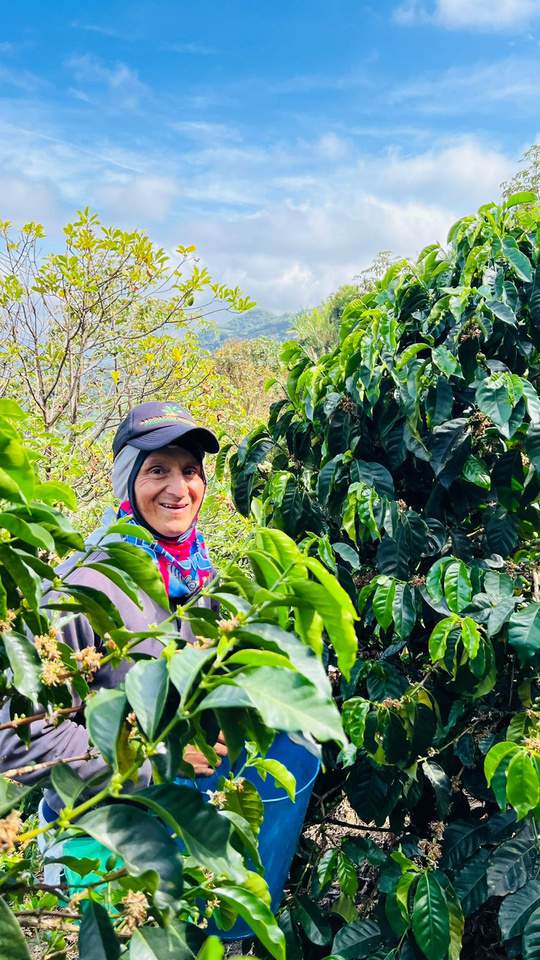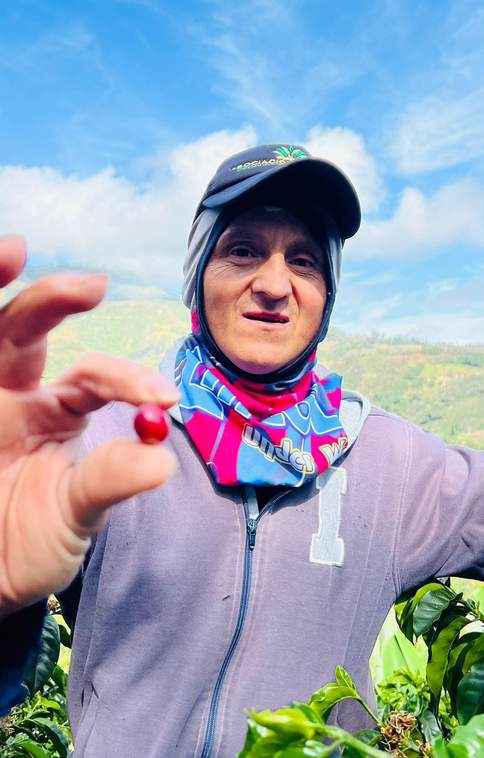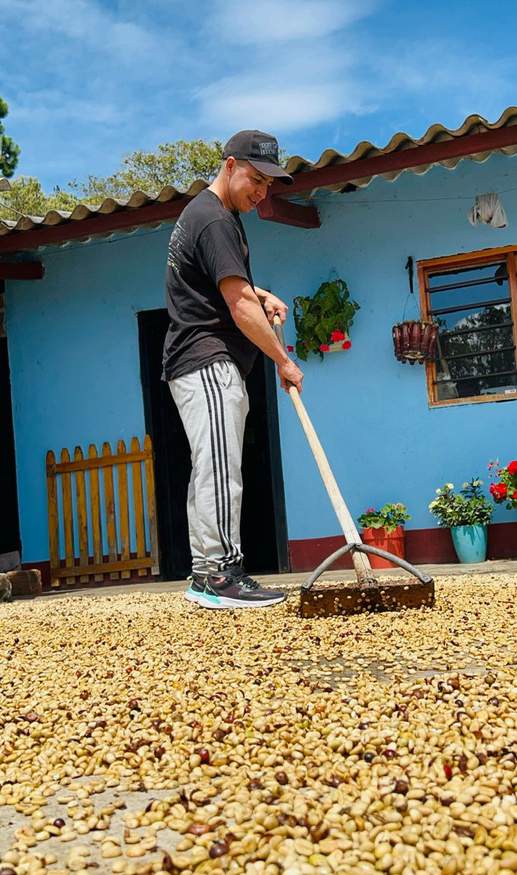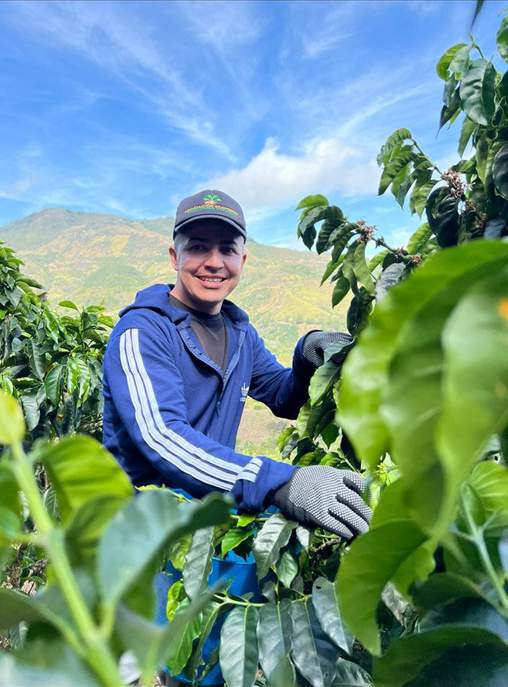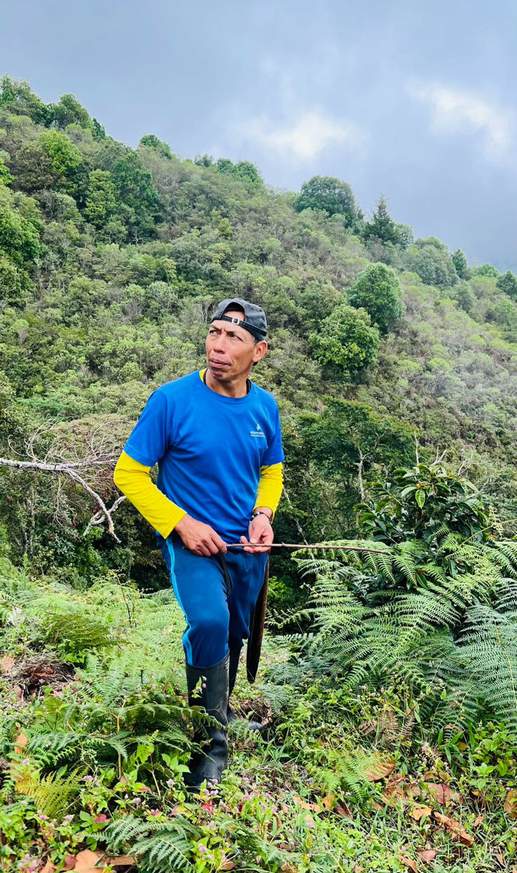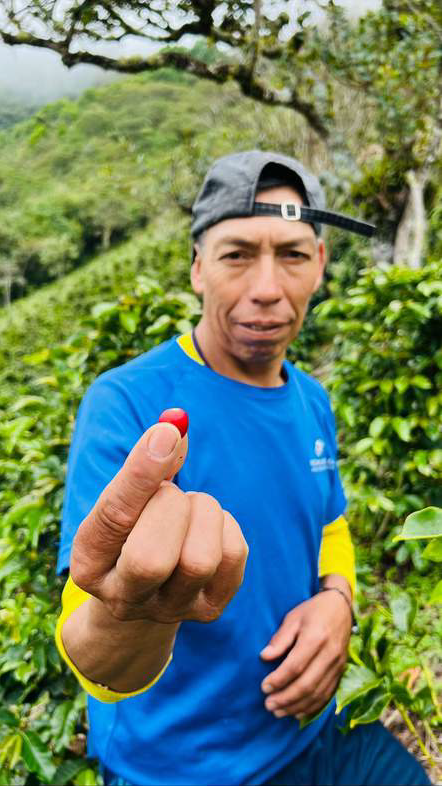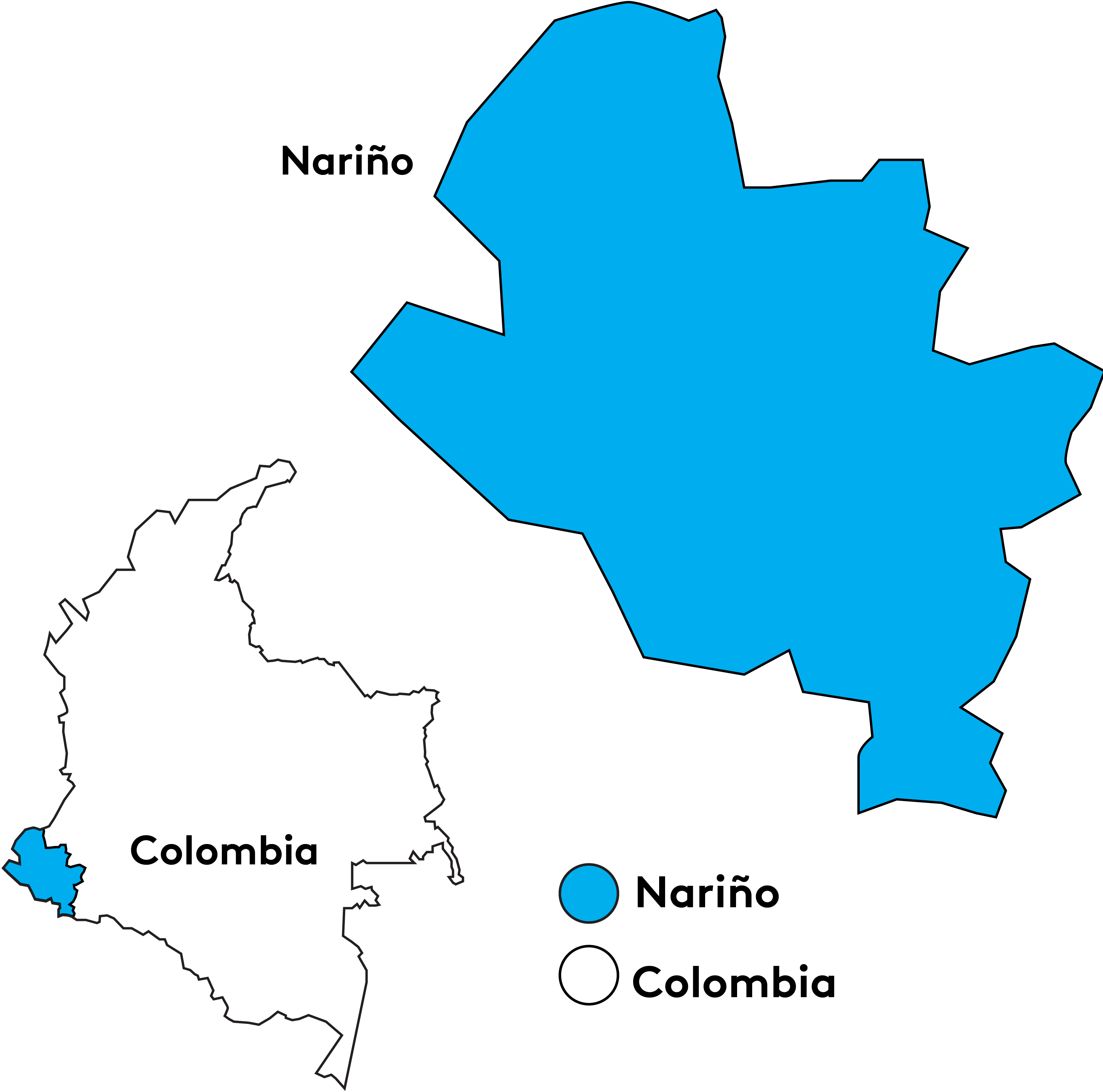This coffee comes to us through Mastercol and is produced by three dedicated coffee growers, each with their own unique story.
First, José Edilberto Ayala from Finca El Arriendo, located at 2,120 m.a.s.l, is a family man with two children. He lives in the San Francisco locality and walks 45 minutes each day to reach his coffee farm. Despite the challenges of cultivating at such a high altitude, his tenacity and strong work ethic drive him to sustain the productivity of his farm and support his family’s livelihood.
Next, we have Luis Carlos Morales España, a young and determined producer from Finca El Naranjo, located at 1,990 m.a.s.l. At 31, he represents the second generation of coffee farmers in his family. As the eldest of six siblings, he serves as a role model, working hard not only on his farm but also within the Ecoterra association during harvest season to help support his family.
Finally, José Wbeimar Castillo Garzón, also from Finca El Naranjo at 1,910 m.a.s.l, lives with his mother in San Francisco. After taking a break from coffee farming four years ago, he returned to the land he loved. While he once worked as a laborer and briefly in coca cultivation due to economic pressures, he now sees coffee as a more profitable and sustainable path. His work in coffee allows him to stay closer to his mother and contribute positively to the environment.
These three farms currently produce around 14,000 kilos of parchment coffee annually, with plans to increase production to 75,000 kilos in the future. This growth is supported by their collaboration with 20 local families, who are being trained to improve their processing methods, enhance quality, and standardize their operations. The goal is to elevate the region’s presence in the coffee market and secure better prices for their beans.
The processing of this coffee is 100% traditional, beginning with manual harvesting, followed by pulping on the same day. After pulping, the beans undergo fermentation in concrete tanks for an average of 36 to 48 hours. The coffee is then washed three times with pristine mountain water from Nariño, before being carefully drained and laid out to dry on solar dryers. The drying process is slow and deliberate, with the beans being constantly moved to ensure even drying. Depending on the weather, this stage lasts between 16 and 20 days, ensuring optimal quality. The processing method used for this coffee is Washed, and its key characteristic is the high altitude at which it is grown. This altitude contributes to denser beans and longer fermentation times, both of which play a crucial role in enhancing the coffee cup’s profile. The resulting brew, named El Rosal after the locality where it is grown.
